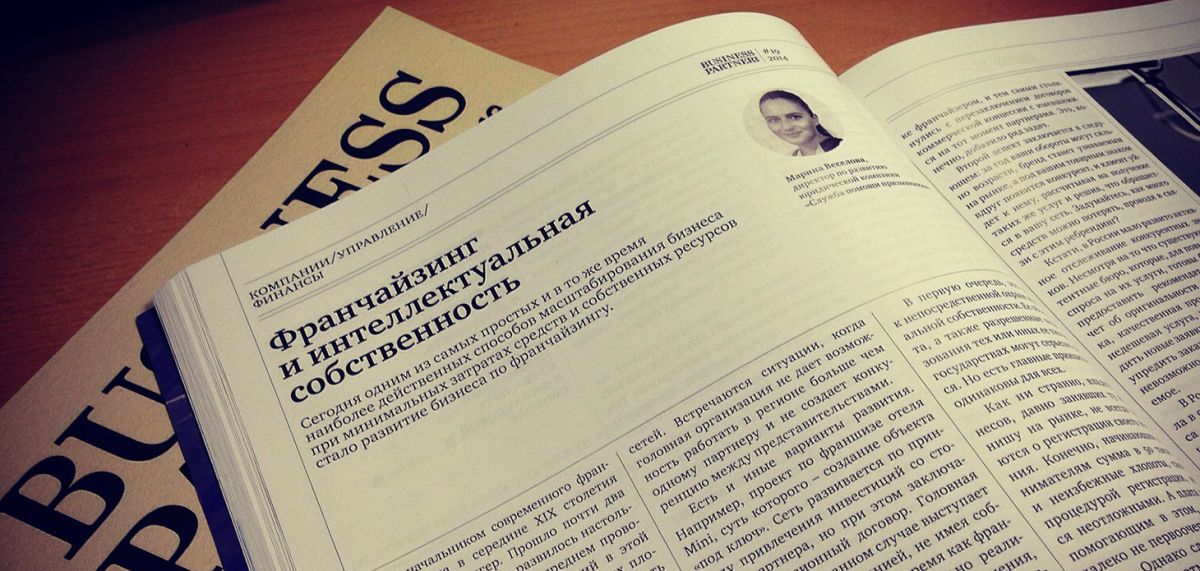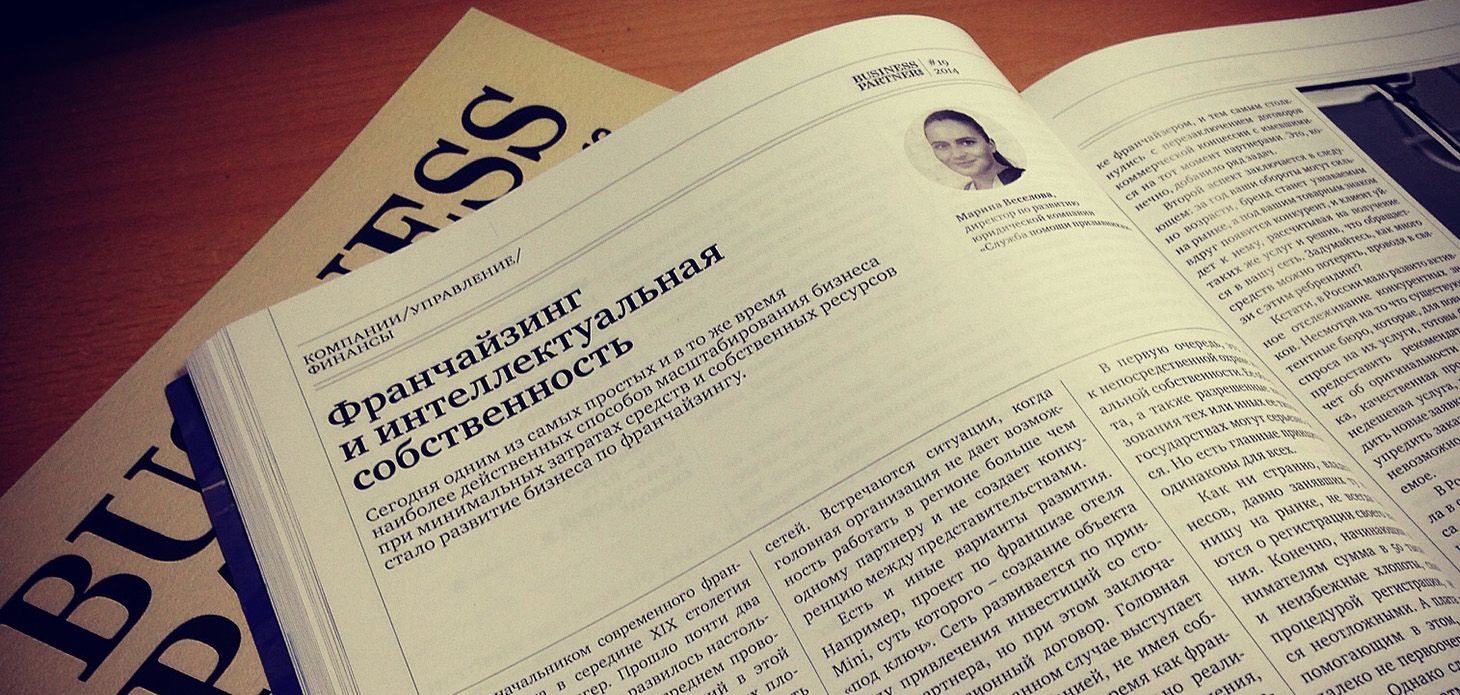
Franchising and Intellectual Property

Franchising and Intellectual Property
Today, one of the simplest and, at the same time, one of the most effective ways of scaling a business with minimal expenses and resources, is the development of a franchise. Isaac Singer is considered the founder of modern franchising in the middle of the 19th century. Almost two centuries have passed and the field has developed so widely that an average of about a hundred events dedicated to this area are held annually, and the same number of advertising platforms on the network are ready to place a huge number of franchise offers. Thanks to the franchise program, a company can not only deploy a national or international network but also increase profits by selling its brand (know-how) and receiving royalty payments (monthly recurring fee) for using the trademark, further consulting, and access to the infrastructure.
Organizations choose different schemes of work within the franchise framework. The main way is, of course, the launch of points with similar activities. For example, in Anglo-American law, there is not only an exclusive license, but also an agreement, the so-called sole license agreement, which allows the right holder not to stop activities on the existing territory, but to continue it on an equal basis with a partner. In essence, the franchisor creates a competitor for himself. But in the contract, the parties can prescribe how the mutual control of activities will go. True, practice shows that in most cases, even when objects are located in the neighborhood, within one kilometer, the right holder, thanks to his experience, is more successful. This is especially evident when building retail chains. There are situations when the parent organization does not allow more than one partner to work in the region and does not create competition between representative offices.
There are other options for development. Now I am involved in parallel with my main activity in a mini-hotel franchise project, the essence of which is the creation of a turnkey facility. The network is developing on the principle of attracting investment from a partner, but at the same time, a license agreement is concluded. The parent organization, in this case, acts as the Management Company without having its own hotel. And with the task of the franchisor to independently implement all stages of the search for premises, construction, recruitment, and filling, the hotel is owned and managed by the franchisee.
But in the modern world of innovative technologies and the World Wide Web, many entrepreneurs still “float” in a few concepts, focusing on getting momentary profits and missing key points that influence further success and development.
First, this refers to the protection of intellectual property. Different countries may have both similar and strong different aspects in their scope of protection, as well as in the permitted uses of its types. But there are basic principles that are the same for everyone. Oddly enough, I often come across the fact that business owners that have long occupied a particular niche in the market do not always think about registering their name. Of course, for novice entrepreneurs, the amount of $1000 and the inevitable hassle associated with the registration procedure do not seem urgent. And paying agencies that help to do this seems far from the top priority. However, it should be borne in mind that the accelerated registration of the trademark has been canceled in Russia since 2012. The process takes not a month now, but more than a year, Thus, companies expecting to make a profit on business models of franchising or through the sale of brand licenses cannot legally enter it into civil circulation until the registration procedure is completed. Besides, there is difficulty with document flow.
The second aspect is as follows: in a year, your turnover can increase dramatically, the brand will become recognizable in the market, and suddenly a competitor appears with your trademark. there is a risk that potential customers will go to a competitor without realizing that a competitor is legally behind the trademark. How much money can you lose by rebranding in this regard?
By the way, active tracking of competitive marks is not well developed in Russia. Despite the fact that there are patent offices that are ready to provide a recommendatory report on the originality of a trademark free of charge to increase demand for their services, a high-quality check of registers is not a cheap service. This allows you to track new applications and promptly warn the customer about the possibility or impossibility of registering the desired mark.
In Russia, on January 1, 2008, the 4th part of the Civil Code on intellectual property and its legal protection came into force. The WIPO (World Intellectual Property Organization) Intellectual Property Handbook provides two reasons for the need for an intellectual property law:
One is to give statutory expression to the moral and economic rights of creators in their creations and the rights of the public in access to those creations. The second is to promote, as a deliberate act of Government policy, creativity and the dissemination and application of its results and to encourage fair trading which would contribute to economic and social development.
WIPO Intellectual Property Handbook, Chapter 1
In October this year, changes are coming in Russian law, some of which may affect the activities of franchisors both positively and negatively. In recent years, the purpose of registration of exclusive rights has become, including increasing the capital of the right holder. The granting of business model patents has led to the current debate over what should be the scope of patentability of objects. Although the information is inherently free, the meaning of exclusive rights is to encourage the provision of information to the public. A patent can be sold and bought, but the invention it covers is not, in fact, owned. Companies, on the other hand, often pursue a policy of exclusive intellectual property rights on the principle of fixing a price for these rights, encouraging potential partners to pay.
Companies do not show their brand’s worth, and, as a rule, usual estimates are unconfirmed. Returning to Ch. 4 of the Civil Code, I would like to draw your attention to the fact that earlier for the Federal Institute of Industrial Property the agreement, where the amount was not spelled out, was considered invalid, from October it will be possible not to focus on this. Thus, for the right holder, the unreported value allows setting different monetary limits for the franchise fee. In this case, royalties can be a good tool for paying the brand front-end fee. The payment can be divided into equal shares, which, in fact, in installments, the partner pays monthly. For the franchisor, this scheme is convenient, since a much larger amount can be pledged, and the potential partner is not deterred by the high costs at the start-up.
…the bourgeois system of ownership demands that knowledge and culture be rationed by the ability to pay.
Eben Moglen
In this case, innovations in the law will play a positive role for the franchisor, since now the owner will be able to terminate the contract with the unscrupulous partner if the payment to the right holder has not been received within thirty days. In this case, the scheme of termination of the contract, in this case, is also simplified. On the other hand, the issue related to know-how will become more complicated. The situation with the trade secret remains, but the innovation can hit the franchisor, whose activities do not relate to the scientific and technical sphere, as strictly regulated. Companies whose activities cannot be attributed to it in any way will not receive legal protection of know-how from the state. And there will be a big question about the possibility of concluding commercial concession agreements with the transfer of the trade secret.
These and other reasons indicate that the first step to competent business development is knowledge of legislation in the field of intellectual property and timely provision of its protection.
Related article: How to choose the franchise

